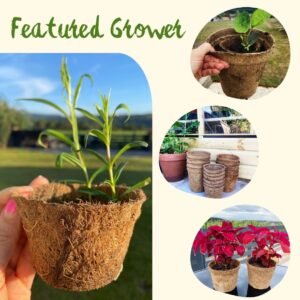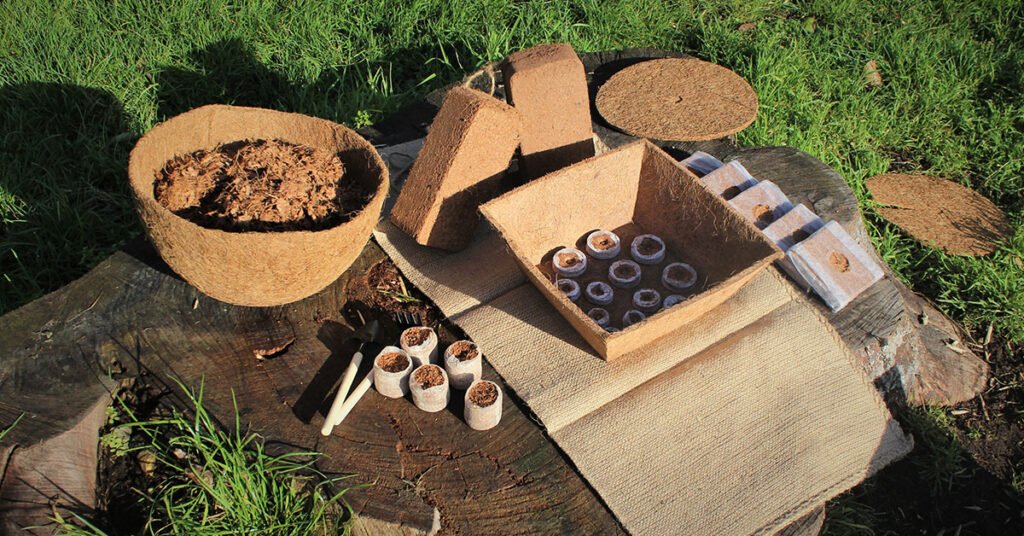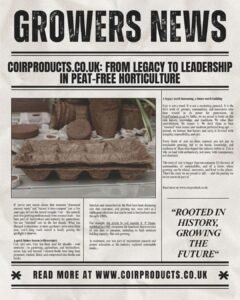
A grower’s choice with Jo: “My houseplants definitely prefer coir”
Our featured grower, Jo talks about her experiences of growing with CoirProducts. Having first come across coir in garden centres, Jo saw coir as a

Peat moss has long been one of the popular ingredients used by gardeners and growers in compost mixes and sowing. Gardeners have been particularly drawn to peat given their ability to retain moisture, hold nutrients, and provide a good soil structure. Yet, the harvesting of peat bogs has had serious impacts on climate change, with the UK government taking steps to ban the sale of peat in horticulture. With many gardeners and growers now looking towards alternative, coir-based products that are completely free of peat moss have gained popularity.
The urgent need for peat-free alternatives in horticulture
Peat bogs contain almost a third of the world’s carbon, and the continued mining of peat moss can release that carbon into the atmosphere, negatively impacting the environment and contributing to climate change. Peatlands are also home to rare plants, birds, and insects, with the harvesting of peat having an adverse impact on these native habitats. According to Forestry England, about 80% of the Uk’s peatland habitats have been either lost or damaged.
Amidst such concerns, environmental organisations and researchers as well as leading horticulturalists worldover, including British horticulturist and broadcaster Monty Don, have recognised the use of coir as an alternative to peat. The use of coir in horticulture, however, is not wholly new, with coir and various other soil-based composts used before peat moss became popular in the 1950s.
The move towards natural, sustainable, and peat-free coir products
Coir is a waste product of the coconut industry and a completely natural and peat-free resource. Coir-based products are made with the fibres extracted from the husk of the coconut. When coconuts are harvested and husked, the long and short fibres are separated. The long fibres are used to produce a variety of household and other products, such as ropes, doormats, and brushes. In the past, the short fibres were discarded and considered a waste. However, over time, this waste material was used to make various coir-based products for growing.

Our featured grower, Jo talks about her experiences of growing with CoirProducts. Having first come across coir in garden centres, Jo saw coir as a

Coir didn’t arrive in the last few years, it’s been powering growers for decades, and we at CoirProducts are proud to build on this legacy!